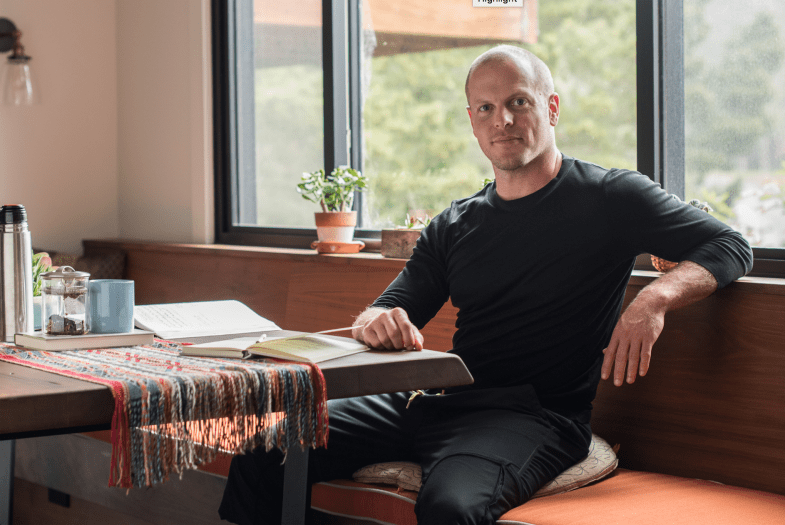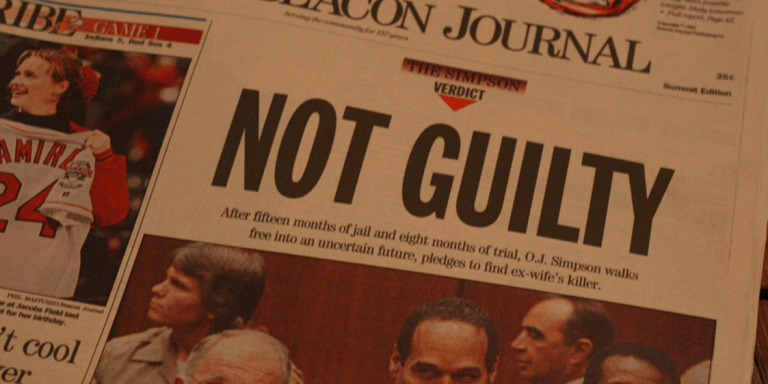
I first met Tim Ferriss in 2007. I hesitate to say he was “just a guy then,” but he was and I was even less of a guy (I was another guy’s assistant and couldn’t legally buy a drink). Within a few months, Tim would go on to publish one of the biggest business books of the last decade and segue it into investments in Uber, Twitter, Facebook and WordPress. Whether you’re a fan of his writing or not, that’s an objectively impressive accomplishment.
In the ten years we’ve known each other, I’ve watched Tim sell several million copies of his books, listened to hours of his podcast (so have 100M other people), and been lucky enough to spend a lot of time with him. Needless to say, I’ve learned an incredible amount. This week he’s publishing Tools of Titans which looks at all the things he’s learned from billionaires, athletes, filmmakers and creators he’s interviewed over the years. There’s some good stuff in there, but I thought I would take the time to articulate the lessons I learned from watching and working with Tim—because they could fill their own book.
What Do You Do With Your Money?
Around the time I was starting my marketing company, I had a conversation with Tim. He asked me what I was working on and what I was trying to accomplish, and I gave your typical answer: I wanted to be financially successful. Then he asked me something I’ve never been asked. “Ryan,” he said, “What do you do with your money?” Basically I just put it in the bank, I told him. “Then why are you doing so many things you dislike to earn more of it?” he replied. This insight changed the course of my business as well as my life. Making money is easier than most people think—knowing why and what for, and not being driven in the wrong direction to get it? Much harder.
Don’t Quit
They just announced the development of what will be Tim’s third crack at a television series. I probably would have walked away in frustration after the first negative experience. But he’s at it again. Because it’s something he wants.
Overdeliver. Overdeliver. Overdeliver.
His books are long for a reason. His blog posts are long for a reason. He over-delivers. Probably an unhealthy amount.
Quid Pro Quo Should Never Be Explicit
When Tim’s blog was just starting to take off, I emailed him and asked him if he might include a link back to mine. I laid out this clear case as to why—the things I’d done for him in helping launch his book, how many copies it had sold, places I’d secured links for him. He replied really quickly, “Ryan,” he said, “I’ll link to you because you asked—not because of these reasons. In fact, in the future, you’ll have better luck when you ask for things if you don’t try to make it seem like the person owes you. No one likes that.” It was a technique I’ve used many times since. There is an art to asking for and trading favors—the most essential part is the social decorum around obscuring the very thing you are doing.
Sleep Is Important
Tim routinely gets 8-10 hours of sleep—something I’m happy to have copied early on and have not fallen into the ‘lack of sleep as a badge of honor’ trap.
Treat Everyone Like They Can Put You On The Front Page Of The New York Times
Tim’s network is pretty astounding. His media opportunities are the secret envy of almost every entrepreneur or author. How does he do it? Tim’s strategy is simple: He treats people well. Especially the people that other people ignore. I remember watching Tim going around SXSW and getting to know people who would go on to become some of the most influential investors and founders in the world. You never know who might help you one day with your work. His rule was to treat everyone like they could put you on the front page of the New York Times…because someday, you might meet that person. Networking is not about finding someone who can help you right this second. It’s about establishing a relationship that can one day benefit both of you. And often the best people to do that with aren’t the busy, important people. You want to meet the people who aren’t well known but should be and will be. It’s not about who has the biggest megaphone. A great example for me was meeting Tim. He hadn’t sold millions of books then and didn’t have a huge platform. Now he does.
Batch Activities Together
I first learned about ‘batching’ from Tim (he recommended it for email) and I now group all my phone calls together in large blocks of time and go for long walks.
You Don’t Have To Be First, You Just Have To Do It Well
Tim wasn’t early on Twitter. He wasn’t early on podcasting. He didn’t have an email list until about two years ago. Yet he has 1.37M followers, has one of the biggest shows in podcasting and his email list is close to a million people (and I now get a bunch of 5 Bullet Friday ripoffs). The lesson to me is that being early is much less important than being right and being great.
Unreasonable Goals Drive Accomplishment
Anyone who has worked with Tim knows that almost every project starts with a goal that seems completely impossible. On the digital launch of his TV show, he wanted to be #1 on all of iTunes. In 2007, I remember him talking about building a huge blog that would publish people other than him—a la the Freakonomics blog. I’m sure with this new book he has an enormous sales goal. Whether or not these goals are ‘reasonable’ or not, there is no question that they drive him to accomplish incredible things. Sometimes he hits them, sometimes he doesn’t. But he almost always ends up further than most people would have if they’d started in the same position.
Get a Win Every Day
I’ve always loved exercising, but Tim has pointed out that exercise is a great way to get a guaranteed win every day. Now I consider it part of my job.
Champion Other People’s Work
In the creative professions, it’s easy to fall into the trap of thinking that someone else’s success threatens your own. Artists can be petty, jealous and small-minded. Tim is a great example for shattering this viewpoint. As I said, his early goal for his blog was to publish other people. Not many sites do that. As his platform grew, he used it to buy the audiobook rights to some of his favorite books and market them to his fans (I was lucky enough to be on the receiving end of this). His podcast is Tim interviewing and showcasing other people instead of him himself. In publishing, there’s even something called the Tim Ferriss Effect—the way he can move the needle for other people. You’d think this would have the effect of benefiting others more than Tim. On the contrary, it’s made him an indispensable resource for his fans. Sharing and championing other people’s work not only creates allies and makes you an important gatekeeper, but it builds your own fan base. You might hate Tim’s books but you can still get good recommendations for other titles from him.
Quit While You’re Ahead
In 2015, Tim told me he was quitting angel investing. I was surprised. Aren’t you doing really well? I asked. He was—but it was taking too much of his time. It was distracting him from what he really liked doing. So he walked away. While he was ahead.
Try New Things
Of all the clients I’ve ever worked with, Tim is the most open to experimenting. Sure, we can pirate my book on Bittorrent and see what happens. Why not try to give my audiobook away for free too? Who needs a traditional and established publisher anyway? There are of course also the infamous videos of him on YouTube swallowing 25 pills at once, getting a biopsy tube into his thigh and implanting sensors in his body. It’s no surprise to learn that Tim even has unique spices created just for him.
Seek Out Negative Feedback
Anyone who has ever been asked to edit something in Tim’s writing gets this question first: “What should I cut?” He wants to know what people didn’t like—so he can improve or get rid of it.
Cut. Cut. Cut.
Speaking of editing, if Tim ever edits your work it will come back covered in redlines. He doesn’t make a lot of edits, he just tells you what’s unnecessary (and there is always unnecessary stuff to cut). I think he cut close to 10% of Ego is the Enemy—and I’m grateful.
Most Important Things First
I start my mornings writing—whether a chapter from a book or an article. It’s the most important (and uncomfortable) task of the day but once that’s accomplished everything else that day is gravy. As Tim asks in his popular post on productivity, “If this were the only thing I accomplished today, would I be satisfied with my day?”
Get a Dog
After 10 years, what’s the one thing that I’ve seen have the biggest positive impact on Tim’s life? He got a dog. It was something I talked to him about a lot—and I knew he’d love having one—but I had no idea how much it would change his life for the better. He’s happier, kinder, more relaxed, more connected and Molly, his mutt, is a big part of the reason why. If you’re thinking about getting a dog, get one. Or a goat. Or a donkey.
Eat Right To Feel Right
I don’t need to sell you on his dieting advice, but it has worked for me. I’ve eaten some version of the Slow Carb Diet for going on 7 years and it’s great. I used to eat terribly and felt terribly as a result. Now I don’t.
Some Stuff Is Just For You
Tim’s writing is full of inside jokes. 99% of readers miss them. But he loves it. He told me that it’s what keeps him going through the dark days of a manuscript. He’s right. You have to have some stuff in your work just for you. Who cares what other people think. It’s just for you.
Who Do You Want To Be Famous To?
Tim once asked me: “Would you rather have 100,000 people in the US, selected at random, consume your content once and know your name, or the entire audience at TED and Davos listen to your podcast at least once a month?” To me, the answer is the latter. His question gives me really valuable clarity as a writer.
Take Vacations from Stuff
If you email Tim, you might get an auto-response saying “He’s taking a vacation from email.” If you ask him for a blurb for your book, he might tell you he’s taking a ‘blurb vacation.’ If you asked him to loan you some money, he’d probably tell you he’s taking a vacation from giving random people money. It’s a great line and an easy way to say no without feeling like you’re being a jerk (which is always hard to do). I cannot count how many times I have borrowed this strategy from him, but it’s massively improved my life.
Evergreen, High Quality Content
Tim has always stressed the value of evergreen long-form content. As he told me in my interview with him, “Long-form content isn’t dead; it’s simply uncrowded and neglected. I double down when formats are out of favor.” He sees thousands of readers discover him through his enormous backlist of posts and it’s a strategy I’ve adopted early on as well.
Don’t Let It Change You
My last point is simple: After all the success I’ve seen Tim have in the last ten years—selling millions of books, becoming a celebrity, getting in on the ground floor of one of the most valuable private companies in the world—he’s essentially the same person (except better in a lot of ways mentioned above). He does what he does because he enjoys it, and he’s compelled to create, experiment and improve because that’s who he is. Tim is still Tim. Most people are made worse by success, and that’s a shame. It has suited Tim well and that’s a model I aspire to. ![]()





